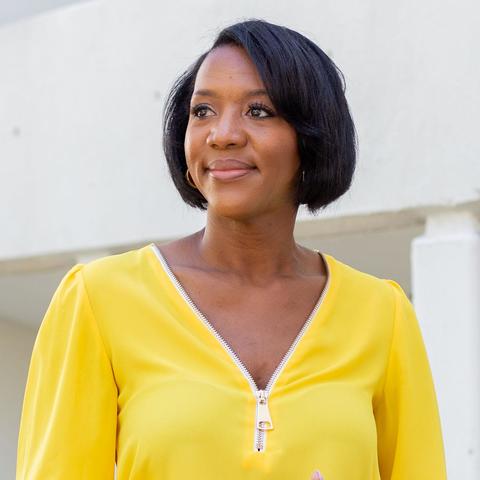Section Branding
Header Content
Gathering of Black medical professionals brings talk of women's health and gun control legislation
Primary Content
Interview with Dr. Rachel Vilanueva, president of the National Medical Association, which is the oldest and largest organization representing African American physicians and their patients in the country. At the upcoming convention they hope to come away with some potential legislative action on gun violence as well as address disparities in health for women.
African American physicians and other health professionals from all across the country are gathering in Atlanta for their convention. The National Medical Association was founded in 1895. It is the oldest and largest association representing Black health care professionals in the country.
Dr. Rachel Villanueva of New York is president of the NMA. She spoke with GPB Morning Edition host Leah Fleming ahead of the convention to outline the group’s priorities.
Leah Fleming: During this convention, you are going to talk about a number of issues — one being women's reproductive rights. Historically, doctors have played a significant role in discussions about abortion, not just on a national stage, but very intimately with women. In the wake of the Supreme Court overturning Roe v. Wade, many doctors are speaking out very publicly about what this decision means for their patients and for women's health. You are an OB-GYN. What has been your experience in the wake of this decision by the Supreme Court?
Dr. Rachel Villanueva: You know, the first thing to just always keep in mind is that abortion is normal reproductive health care for a woman. And so this is part of making sure that a woman can stay healthy. And so I think we have to get out of, you know, what the politics may be and what people's personal issues are. But this is reproductive health care. As far as for me, I'm actually fortunate because I practice in New York. And so now, since Roe v. Wade was overturned, it goes back to the states to decide whether a state will allow this medical procedure to be performed. And in New York, we still have that option. So I'm very fortunate and my patients are very fortunate that this is allowed to continue to happen in New York and that women continue to have the right to make choices for their own health care and for their own bodies and for their own economic future and livelihood.
Leah Fleming: According to the Association of American Medical Colleges, I was reading that Black doctors make up just about 5% of active physicians in the country in 2018, which is the most recent data available. I found that so shocking. Just 5%.
Dr. Rachel Villanueva: It's shocking, but it's not surprising because in the early 1900s, there was a report that came out known as — a very famous report known as the Flexner Report. And it closed all but two Black medical schools. And at that time, the Black medical schools were the institutions that were educating Black physicians because they could not go to white — white medical schools. So there have been some estimates that had those schools not been closed at the time, that we would have probably another 30,000 Black physicians in ... society right now, or educated. And so we know that Black patients and patients of color do better when they're taken care of by physicians of color. So when we're trying to address issues of health care disparities and achieving health equity in our in our country, we know that diversity of our workforce is a critical component to that.
Leah Fleming: You have said that gun violence is a public health crisis that kills over 45,000 Americans each year, and it's wreaking havoc on our communities all across the country. There is a gun violence townhall that is happening at your convention. What would you like to accomplish with this townhall?
Dr. Rachel Villanueva: We have to address this issue as physicians. And sometimes people say you have to stay in your lane, but this is our lane. This is a public health crisis. And if it's not addressed, you know, our communities suffer not only physically, but mentally and emotionally. And so we're really coming together where we're so honored to have Congressman Bennie Thompson come to help us address the issues. We hope to come out with some actionable steps, maybe some policy that will work with the congressman on to move the needle in the right direction as far as our society is concerned.
The NMA convention runs from July 30 through Aug. 3. It offers a live stream of the plenaries at https://blackdoctor.org/


